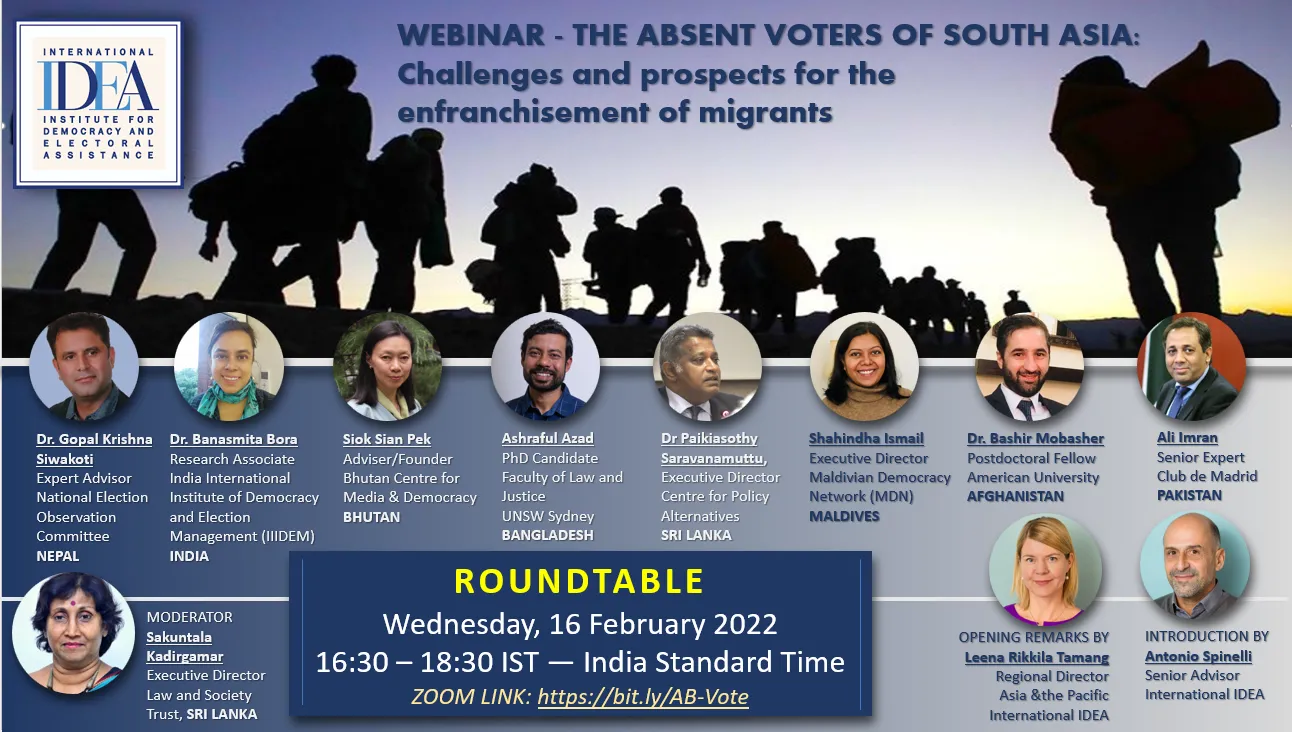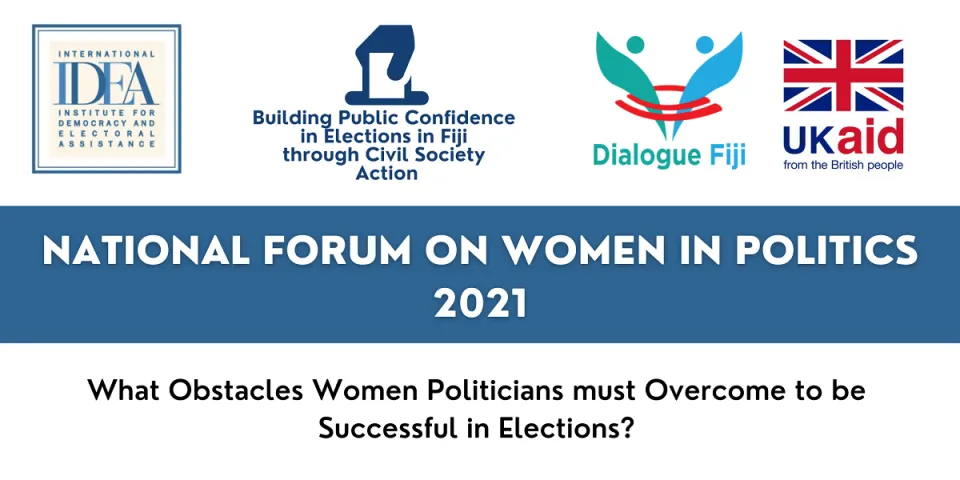The Absent Voters of South Asia: Challenges and prospects for the enfranchisement of migrants

International IDEA is hosting a virtual Roundtable, titled “The Absent Voters of South Asia: Challenges and Prospects for the Enfranchisement of Migrants”, with the participation of select experts from the sub-region.
Whilst of a global scale, the challenge that migration poses to inclusive democracy, political participation and representation appears to have a greater impact in some of the world’s regions than in others. Such impact is particularly evident and marked for South Asian subregion; comprising of Afghanistan, Bangladesh, Bhutan, India, the Maldives, Nepal, Pakistan and Sri Lanka.
In the last decades, this territorially vast, densely populated and ethno-culturally diverse subregion has witnessed international, intraregional and internal migratory movements of massive proportions and, in the years to come, is also projected to continue producing and receiving the greatest number of migrants worldwide. While international and intraregional movements comprise a major share of South Asia’s migration, its internal flows record much larger stocks. Combined, international and internal migratory stocks are likely to be even of more epic proportions than those attested by the official data and statistics, due to the large undocumented flows of permanent, temporary and circular migration.
Despite such large-scale migratory flows, most of South Asia's countries are currently either offering limited opportunities to their migrants to vote in their country’s elections, and do not provide any voting methods alternative to those already in place for their resident citizens to cast their ballots. By virtue of being absent from their place of ordinary residence, South Asia’s international and internal migrants are disenfranchised almost on a mass-scale, either because at the time of elections they are outside their country of origin, or because, while still being in-country, they are temporarily or permanently away from their constituency of registration.
Through the Roundtable, International IDEA examines the case of South Asia: what key factors trigger its external and internal migratory flows, what barriers are limiting the enfranchisement of its migrant voters. Bringing attention to the systematic disenfranchisement of migrants in this subregion, the Roundtable aims to help identify actionable policy recommendations and contribute to addressing a widespread phenomenon affecting most of the world’s regions which, despite being evident, continues to be acquiescently neglected.



